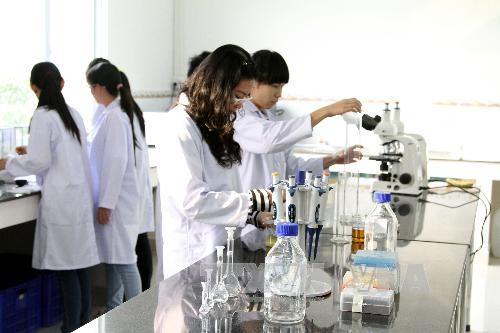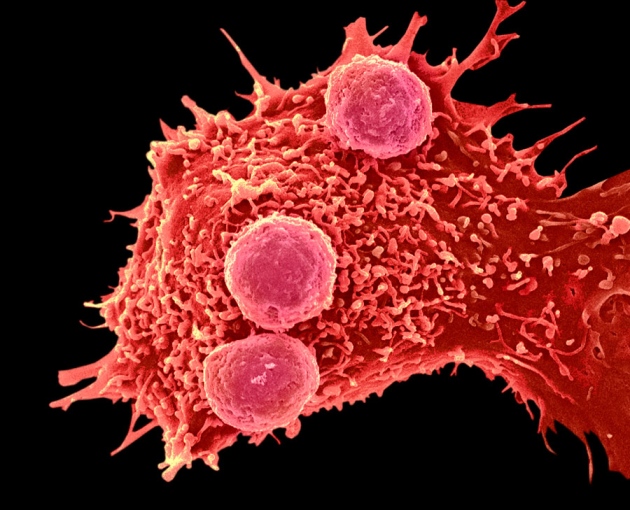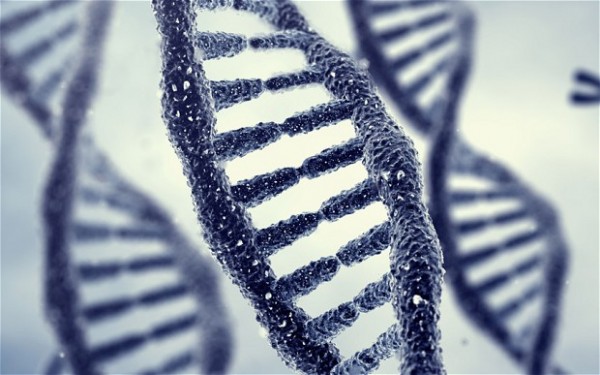Concerns about future applications of CRISPR

...next step Chinese military [PLA]



The technology has been particularly popular in China, where the government and some corporations are making huge investments in CRISPR. In fact, Chinese scientists say they were the first to make a type of wheat that is resistant to a fungal disease. They also claim to have created more muscular dogs and leaner pigs. What they often fail to mention, however, is the fact that 30 of the 32 pigs they subjected to the technique died prematurely, showing that even the simplest of genetic tweaks can have a big impact on the animal throughout its lifetime.
While few people would argue with the importance of finding a way to cure cancer, not all uses of CRISPR are ethical. For example, the Chinese scientists who found a way to make dogs more muscular, jump higher and run faster are considering using the technology to benefit the military and police by creating stronger dog breeds. If that happens, it’s only a matter of time before they start using it to alter human DNA to create “better” police officers and soldiers.
...........................................................................
CRISPR gene-editing tested in a person for the first time
The move by Chinese scientists could spark a biomedical duel between China and the United States.

Steve Gschmeissner/Science Photo Library
Gene-editing could improve the ability of immune cells to attack cancer.
A Chinese group has become the first to inject a person with cells that contain genes edited using the revolutionary CRISPR–Cas9 technique.


SuperHuman Chinese?
On 28 October, a team led by oncologist Lu You at Sichuan University in Chengdu delivered the modified cells into a patient with aggressive lung cancer as part of a clinical trial at the West China Hospital, also in Chengdu.
Earlier clinical trials using cells edited with a different technique have excited clinicians. The introduction of CRISPR, which is simpler and more efficient than other techniques, will probably accelerate the race to get gene-edited cells into the clinic across the world, says Carl June, who specializes in immunotherapy at the University of Pennsylvania in Philadelphia and led one of the earlier studies.
CRISPR gene editing may wipe out human geniuses to dumb down human civilization to “conforming” average
Wednesday, January 04, 2017 by: David Gutierrez

(Natural News) The biotechnology technique known as CRISPR has brought down the costs of genetic engineering by 99 percent and slashed the time required to create new modifications to a matter of weeks. And while Frankenfood companies such as Monsanto are already eagerly pursuing this technology in their efforts to gain more control over the food supply, the most wide-reaching effects of this new technology will probably lie in the medical arena.
CRISPR and associated “gene editing” technologies have come under fire for many of the same reasons as traditional genetic engineering, but now Dr. Jim Kozubek has raised a new concern: CRISPR may actually enable doctors to eliminate certain neurological and psychiatric “diseases” that have actually been the key to producing many of humanity’s great minds throughout history.
Kozubek is author of Modern Prometheus: Editing the Human Genome with Crispr-Cas9.
Can mental “illness” be a gift?
CRISPR is short for CRISPR/cas9, itself an abbreviation for Clustered Regularly-Interspaced Short Palindromic Repeats/CRISPR associated protein 9. The technique works by using a special RNA strand to guide a DNA-splicing protein to a particular site on the genome. It can be paired with other techniques to insert new DNA into the site where the old code has been removed.
Scientists are already investigating ways to use CRISPR to eliminate various human diseases.
“Before we begin modifying our genes with gene editing tools such as Crispr-Cas9, we’d be smart to recall that genetic variants that contribute to psychiatric conditions may even be beneficial depending on the environment or genetic background,” Kozubek said.
For example, Kozubek noted, the rate of bipolar disorder is 10 times higher among writers than among the general population, and 40 times higher among poets.
“Thomas Edison was ‘addled’ and kicked out of school. Tennessee Williams, as a teenager on the boulevards of Paris felt afraid of ‘the process of thought’ and came within ‘a hairsbreadth of going quite mad,'” Kozubek said.
According to Kozubek, the idea of editing “genetic disease” out of the human population reflects a poor understanding of evolution.
“Scientists tend to think of variations in life as problems to be solved, deviations and abnormalities outside of a normal curve,” he said.
“In reality, Darwin showed us that evolution does not progress toward an ideal concept or model, but rather is a work of tinkering toward adaptation in local niches.”
Science rushes recklessly ahead
Kozubek’s comments come in the context of the United States and China both having announced the world’s first clinical trials on CRISPR in humans, with the United Kingdom expected to follow close behind.
In the Chinese trial, already underway, a man was injected with immune cells that had been taken from his body and modified, with CRISPR, to attack his lung cancer. The team plans to perform the same intervention on another nine people, and monitor them for six months. This will be followed by other Chinese trials on CRISPR-modified treatments for bladder, prostate and kidney cancers.
In the United States, the trials are focused less on the effectiveness of CRISPR cancer treatments and more on their safety. Human participants will be injected with immune cells taken from their body and then modified to seek and destroy cancer cells, hide from cancer cells that will destroy them. Another edit is intended to prevent other immune cells from interfering with the process.
Critics have warned that contrary to the promises of the biotech industry, CRISPR editing has a very high error and mutation rate, and does not confer particularly precise control over the biological outcomes of the gene “editing.”
Another major danger posed by the ease of CRISPR editing is the allure of making modifications to human sperm, eggs or embryos. These “germline” modifications are able to affect every organ in the body and can be passed on to future generations — making their overall effects nearly impossible to know ahead of time.
No comments:
Post a Comment
Comments always welcome!